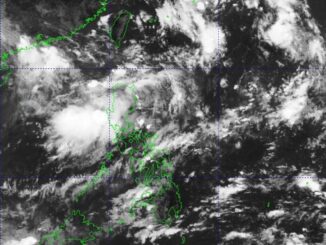
Last of two parts
“Cultural, economic and legal factors significantly contribute to land disputes in the Philippines. Intimidation, violence and even murder are often used as strategies to grab land,” says Rachel Cox, Strategic Campaign Lead for Land and Environmental Defenders at Global Witness, which investigates and advocates for the rights and protection of land and environmental activists worldwide.
In 2021, a family of five — including three children — was murdered in Camarines Sur over a family land dispute. Arthur de Leon, 40 years old at the time, used an M16 rifle to kill his uncle, Romeo de Leon, 72, and his grandnephews and grandnieces.
Police said Arthur barged into the home of his uncle, Romeo, in the village of Tarusanan, peppering him with bullets in the face and other parts of the body. Romeo’s grandsons Hobbie John and Robbie John, who were playing inside the house, were also hit and killed. Their other brother, Hades John, was wounded.
After shooting his uncle and grandnephews, Arthur went to the adjoining house owned by Romeo’s daughter, Luzviminda Cobilla, and aimed at her but ended up shooting her son, Samuel Cobilla Jr., who shielded his mother.
Arthur then threw a grenade inside the house, hitting Luzviminda’s young daughter, Noela, who later died in hospital.
One of the relatives said that in 2020, the brother of the suspect, a soldier, killed Romeo’s son.
“This was over land, man,” the man told a newspaper in Filipino. “My sister-in-law is also a relative. The suspect harbored a deep grudge because of a dispute over land. First, he killed my sister-in-law’s brother at close range in the head. That was in 2020. Now he is back and really wants to finish them all off.”
Mediation process
To avoid this kind of violence, the government relies on mediation.
“We always have in mind during mediation the so-called win-win solution. So possibly, if the issue is ownership and possession, the parties will mutually agree to divide the property or the other way around, the parties may resort to the conduct of a verification survey to determine the extent of overlapping properties, and they even bring this up to the court-appointed commissioner, who will help the court in determining how the problem will be solved,” says Ricardo Pilares, Jr., a lawyer at Pilares Law Firm.
He cites Article 22 in the Civil Code and Article 151 of the Family Code requiring action involving members of the same family not be filed unless there is an earnest effort toward amicable settlement. Families must show proof that they have tried through the barangay; to the family council or other means necessary. When there is a lack of proof in accepting an amicable settlement, the court will dismiss the case on the grounds of lack of jurisdiction.
Argel Masanda, forensic psychologist and a professor at the National University Philippines, says a psychological assessment can help determine if an individual involved in the dispute has the mental capacity to understand the legal proceedings and make informed decisions about their property. This is relevant in cases where elderly family members are contesting a will or where mental illness is suspected.
In cases involving violence, a psychological assessment can help shed light on the perpetrator’s mental state at the time of the incident. He says this is relevant in determining criminal charges or potential mitigating factors. If violence has occurred, a psychological assessment can document the emotional harm suffered by the victim, which is used to support claims for emotional damages in civil lawsuits.
Dealing with trauma
“Educating communities about conflict resolution skills, communication techniques, and the legal aspects of land ownership can [help] equip them to address disputes peacefully before they escalate,” Masanda says. “Psycho-education like workshops or programs that raise awareness about the psychological impacts of land disputes and how unresolved trauma can perpetuate violence can encourage families to seek help.”
Trauma therapy helps individuals or families address underlying issues so they can process past trauma related to land disputes, develop healthy coping mechanisms, and break cycles of violence. He also advises providing social support programs and networks for families to help them feel less isolated. These can help them manage the emotional challenges of dealing with property disputes.
Psychologists have a strong ethical obligation to maintain confidentiality with their clients. However, in some cases, a client may reveal a plan to commit violence over the property dispute; they have a legal and ethical duty to forewarn potential victims or involve the authorities.
“Balancing confidentiality with the safety of others can be a difficult call. In smaller communities, psychologists might know multiple family members involved in the dispute. This can create a conflict of interest. Seeing one family member might make it difficult to remain objective when treating another,” he adds.
Psychologists can refer their clients to others to avoid conflict of interest as land disputes are “highly emotionally charged, and there might be significant power imbalances within families.” They have to be mindful of the family dynamics coming into play to ensure all parties will feel heard and respected during therapy sessions.
Pilares has proposed the creation of a special court that handles only land dispute cases that have piled up over the years.
“I have been involved in litigation since 1980, one of the factors that I observed is the improper use of invocation of the due process clause of the Constitution. [There should be a] published listing of the titles that are officially declared null and void by the Supreme Court because, as you can see, defeated parties would sometimes resort to another committee for litigation,” he says.






Be the first to comment